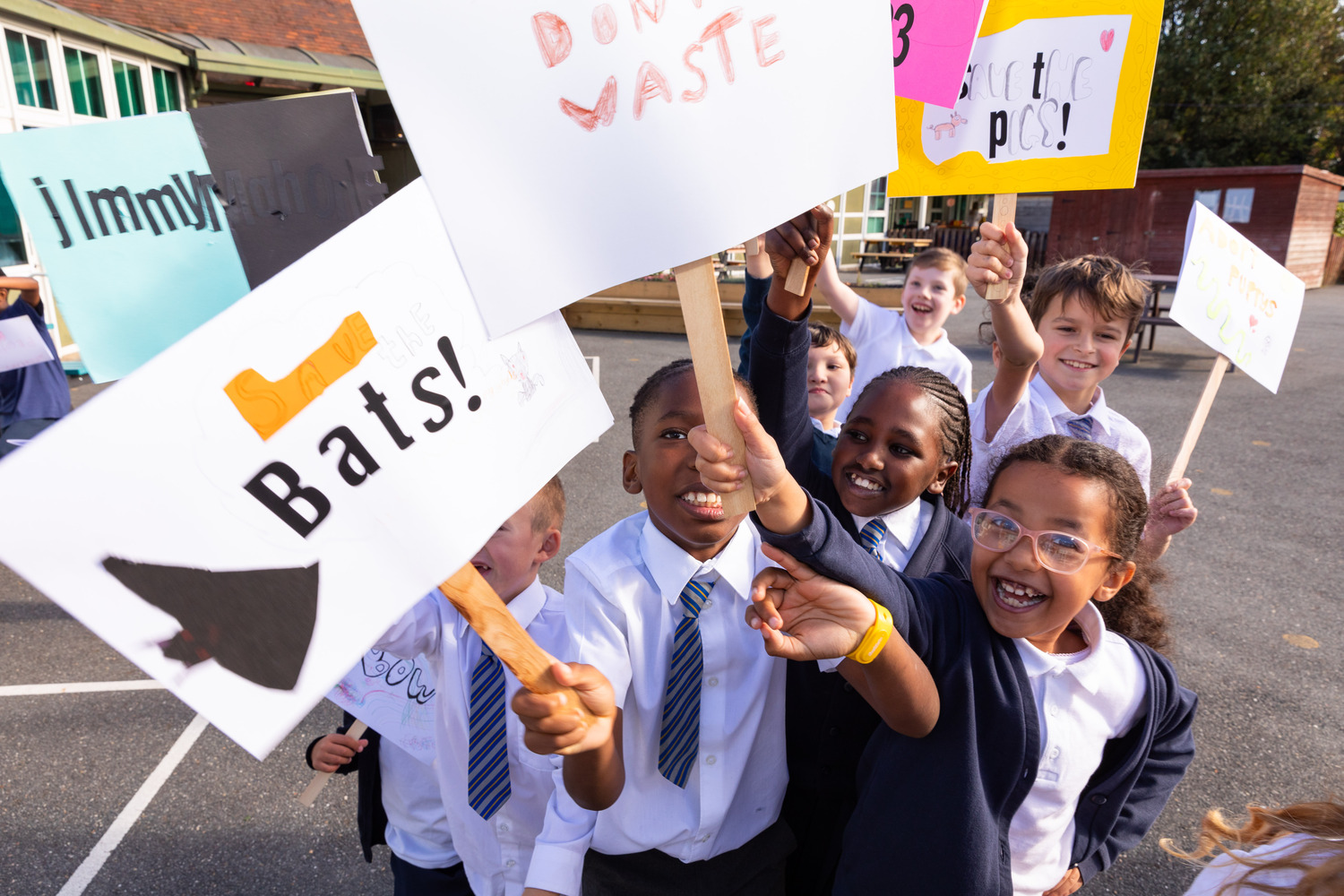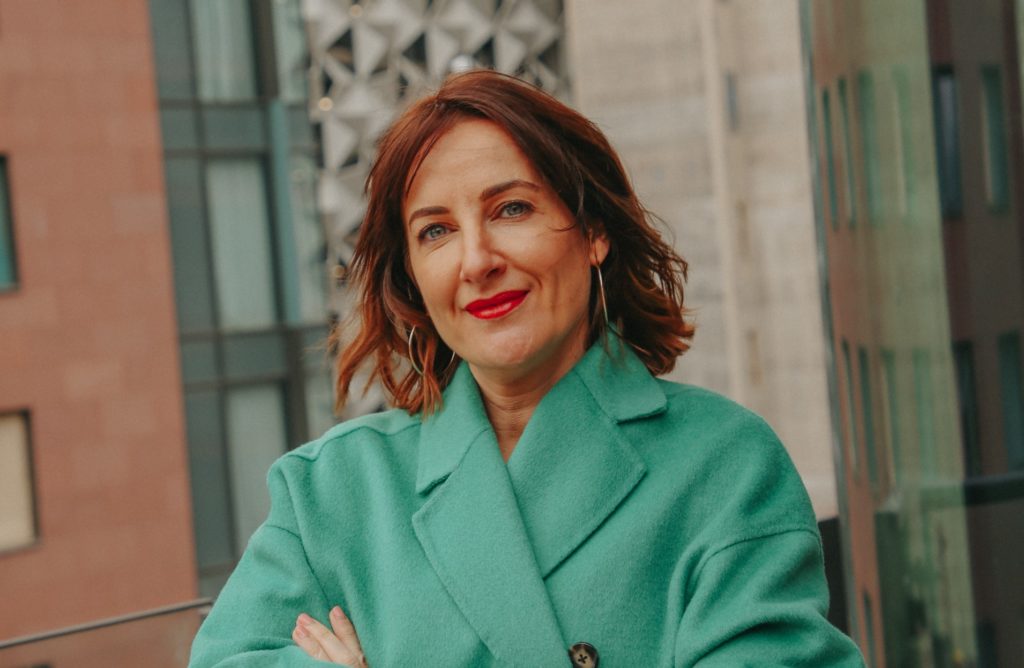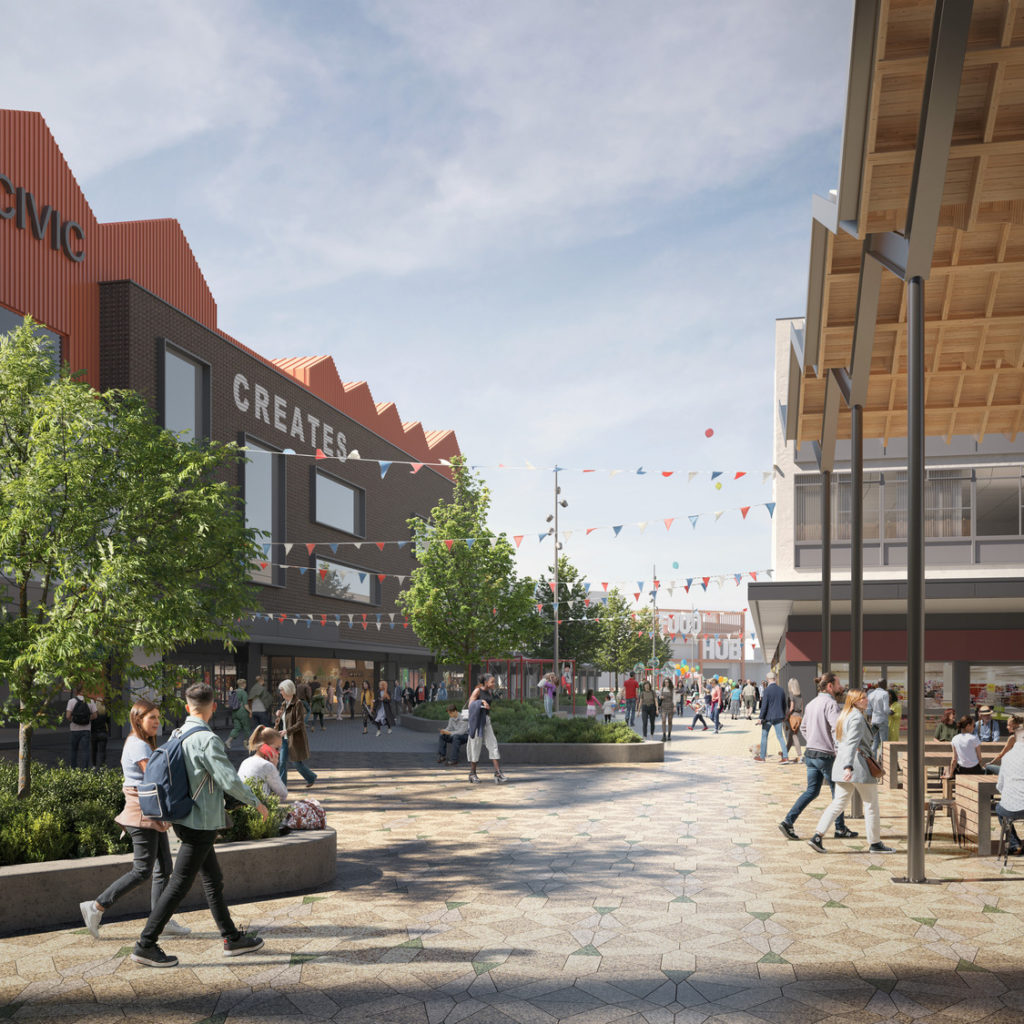Master Developer vs. Placemaker (and why language matters)
09.12.24 3 min read

In urban regeneration, you will hear the term ‘Master Developer’ used to describe companies that lead the delivery of large scale, multi-phase developments. It’s a term that carries a sense of responsibility and expertise, authority and control, with the power to shape entire neighbourhoods and landscapes from scratch.
And it’s what Muse do, right? However, we prefer to call ourselves ‘Placemakers’.

Orla McGrath, Head of Brand and Communications
Why? and what does ‘Master Developer’ even mean?
The idea of a ‘Master Developer’ comes from the notion that a single entity takes charge in a large, often multi-phase development. They secure the land, get planning permission, oversee construction, and manage marketing and sales.
On paper, its a solid setup. It means there’s a unified vision and clear accountability, which keeps everything moving forward. But in urban regeneration—where big projects like Lewisham Gateway can take up to twenty years, time when communities and local needs are constantly evolving—this top-down approach can start to feel rigid and disconnected from reality.
While Master Developer ensures strong leadership and control, creating vibrant, sustainable communities takes something more. It calls for open communication, collaboration, agile thinking and a willingness to adapt to a wide range of perspectives.
For us, urban regeneration is a melting pot of ideas, where different voices—from local authorities and community groups, to home owners, business owners and private sector partners—are all heard, and are combined to craft a great and lasting outcome. The strength of each place comes from how well it reflects the needs, hopes, and dreams of all the people who live and work there, now and in the future.
Our role isn’t about a top down vision or pushing a single agenda. It’s about partnership, collaboration, and genuinely understanding the communities we’re working with.
Why we embrace placemaking
Our approach is all about placemaking, a way more inclusive, holistic term. Placemaking isn’t just about buildings or infrastructure—it’s about creating spaces where people genuinely want to be, to live, work, and spend their time. It’s about place feel – the culture, identity, and overall experience of a place. It’s about fostering a sense of belonging and ownership within the communities we help transform.
Our success is built on working closely with a variety of partners, each bringing their own expertise, ideas, and needs to help shape the final outcome. This includes local authorities, community groups, business owners, investors, funders, and even other private developers.
We believe great places aren’t the result of one person’s vision—they’re made through collaboration. Urban regeneration is complex, and no two projects are the same. By thinking of ourselves as placemakers, we stay flexible, adaptable, and open to the unique challenges and opportunities each project brings.
At Northshore, Stockton-on-Tees, Muse worked alongside our partners Homes England and Stockton-on-Tees Borough Council to transform former industrial brownfield land on the banks of the river. We partnered with our sister company, Lovell, to deliver a transformative new neighbourhood of high-quality housing, and with Hilton Hotels, to bring much needed hotel accommodation to the area.
Neil Schneider, former CEO, Stockton-on-Tees Borough Council said
Collaboration is key
Another reason we’ve steered clear of ‘Master Developer’ is that it implies a controlling relationship. That’s not how we operate. We take pride in working in true partnership with local authorities and community groups. For us, every project is a conversation, and we steer and listen as much as we lead.
When we start working in a new community, we don’t show up with a ready-made solution. We may have ideas, but we always quickly dive into a collaborative process, where the input of local residents, the council, and other stakeholders directly shapes what the neighbourhood will look like. This co-creation is what leads to places that truly resonate with the people who live and work there.
At Wythenshawe, in Greater Manchester, we have been collaborating with the local community since the bidding stage. We knew that a successful bid would be one that took the perspectives of local people into consideration and built a proposal that addressed real community needs. We were delighted to be appointed and to now be taking this vision forward.

Artist's impression of the future of Wythenshawe town centre
We also work hand-in-hand with private sector bodies and funders to make sure projects are financially viable, while staying focused on social value. Regeneration isn’t just about physical transformation—it’s about creating social, economic, and environmental value that benefits everyone involved.
Why language matters
Branding is more than just a marketing exercise—our brand reflects our values, mission, and approach. The term ‘Master Developer’ paints a picture of top-down leadership and control. But for us, urban regeneration is an evolving process built on collaboration.
‘Placemaking’ is a term that better captures who we are. It speaks to the shared responsibility of creating spaces that benefit everyone—places that are vibrant, sustainable, and designed with a true understanding of local needs. Our job isn’t to dictate urban change, but to facilitate it.
The future of urban regeneration
The future of urban regen lies in collaboration, creativity, and community. It’s about more than just delivering new homes and infrastructure—it’s about building places people are proud to call home. By moving away from the notion of a single ‘Master Developer’ and instead embracing the role of placemaker, we position ourselves as partners in this transformation—working hand-in-hand with our partners and communities to create meaningful, lasting change.
At Muse, we’re not here to impose a vision. We’re here to listen, collaborate, and help shape the future of our cities and towns in a way that’s kinder, more inclusive, more interesting, and truly reflective of the people who live and work there.
After all, we are building a brighter future ‘together’, not alone.